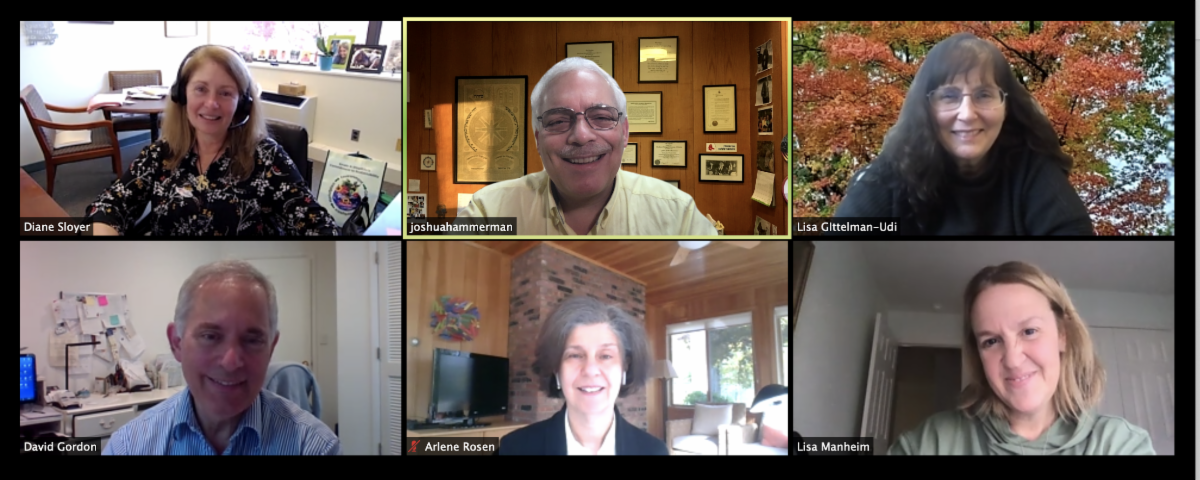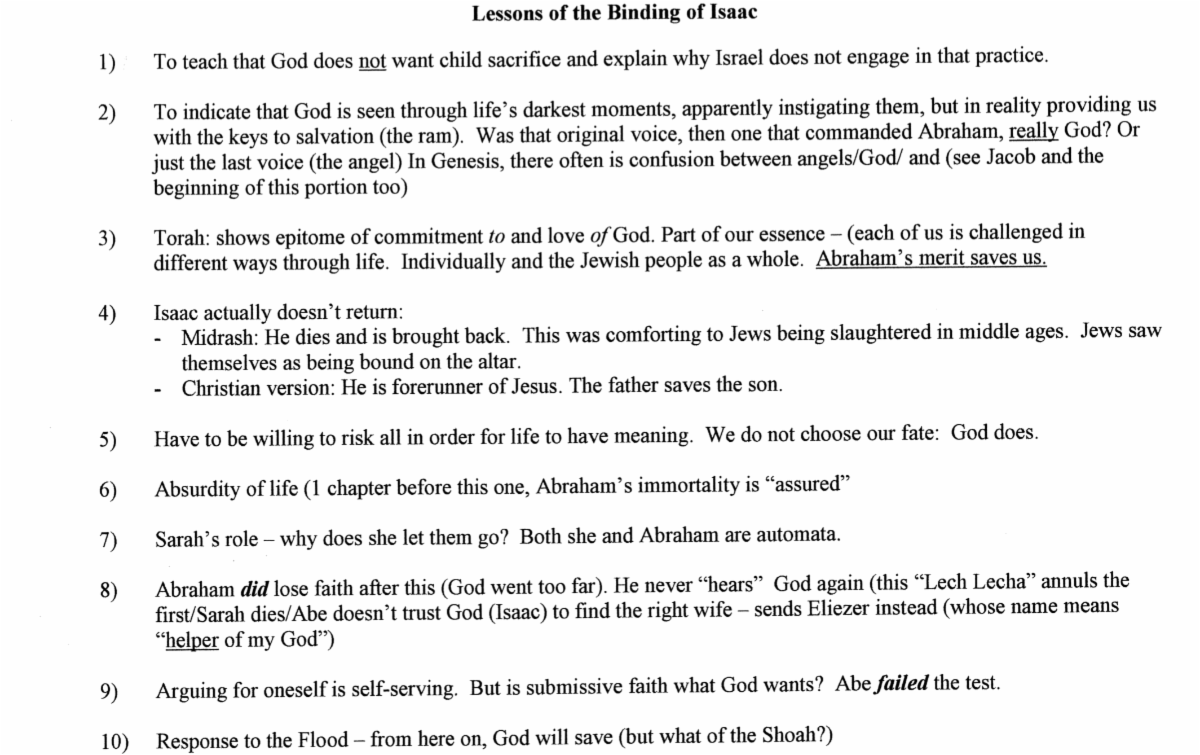In This Moment
Shabbat-O-Gram, November 6, 2020
Mazal tov to Maya Shapiro, who becomes Bar Mitzvah this Shabbat morning. The Shabbat-O-Gram is sponsored by Danielle and Lael Shapiro in honor of Maya.

Our professional and lay leadership convened with leaders from UJF this week, to affirm our common goals and values. Please respond to the call at UJF's Super Sunday this week. See more photos in our fall album.

Click here for Zoom recording, screen shots and the dvar Torah
from last week's service celebrating Richard Baer becoming Bar Mitzvah
If you missed last week's commentary on the film "Borat," (or have since seen the film and are now immune to the spoilers), see it here as a Times of Israel featured op-ed.
For this week's portion of Vayera: The Akedah Project

The Akedah Project explores the story of the Binding of Isaac ("akedah" means "binding" in Hebrew), which is one of the most confounding narratives in the Bible. Scholars, rabbis, artists, teachers, poets, and readers have tried to make sense of this story for millennia, which has given us a range of lenses through which we can read it, even as we bring the new questions, ideas, and perspectives that come with every new generation of readers. Click here to find more than 30 videos, each offering coming to the Akedah from a different angle.
And see my take below as to 23 lessons we can learn from the Akeda:


Rabin's Hope
Stamford Jewish Community Responds to Rabin Assassination, Nov. 1995 |
As I write this, the election has not been called, so it would be premature to opine on it or congratulate the winners. I invite you to join us at our Kabbalat Shabbat services this evening at 6 as we enter a most welcome - and most needed - Shabbat and start the process of regaining strength for the important work head - the work of healing and recovery, especially needed as the Covid cases continue to rise, nationally and in our area.
Yesterday and today mark the 25th anniversary of the assassination of Prime Minister Yitzchak Rabin. That event changed the course of history dramatically and it continues to traumatize us to this day. Rabin's legacy can be helpful to us this week.
What made him such a visionary leader is that he was able to let go of the past without losing his historical perspective. There are lessons to be learned from any experience, and he learned plenty over the course of his epic career. But he never let old resentments cloud the fact that every new day presented a gleaming blank slate of possibilities.
Though not a religious man, he embodied the spirit of the prayer Jews recite each morning, praising God "who renews in goodness each day the work of Creation." Every day God presses the "reset" button. Rabin was able to do this as well, like Mandela and Gandhi, Lincoln, Sadat, Martin Luther King Jr. and other visionary leaders (many of whom also met violent ends) - and unlike the vast majority of the Israeli and Palestinian leaders who have followed him.
When he received his Nobel Prize, Rabin said, "...of all the memories I have stored up in my 72 years, I now recall the hopes. Our peoples have chosen us to give them life. Tonight, their eyes are upon us and their hearts are asking: how is the authority vested in these men and women being used? What will they decide? What kind of morning will we rise to tomorrow? A day of peace? Of war? Of laughter or of tears?"
Rabin could have fallen back on his litany of tragic memories, of countless comrades buried, of opportunities wasted, of incessant terror and reprisal, of hatred endlessly regurgitated. He chose instead to "recall hopes," a seeming oxymoron, to retrieve - from his past - a future-focused buoyancy that is at the very core of Zionism, a hope that is its anthem's very name, and to use it to forge a vision of astonishing promise and endless possibility. He chose to go back to the future.
And as we begin to navigate past a traumatic 2020 and painfully divisive period in American history, so must we. What lies before us can either be seen as a wasteland, a huge mess in a bitterly divided landscape, or a glittering opportunity for a fresh start.
Like Rabin before us, let's lean toward the latter. Let's posture ourselves in the direction of hope.
Also on Rabin, See:
Kristallnacht
This coming week we mark the 72nd anniversary of Kristallnacht, the Night of Broken Glass, when many say the Holocaust really began. Read about those fateful events here.
Shabbat Shalom
Rabbi Joshua Hammerman
No comments:
Post a Comment